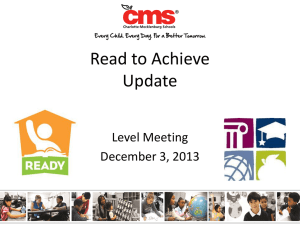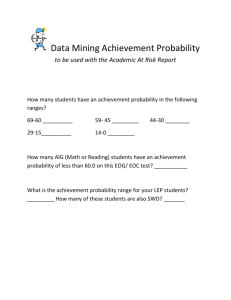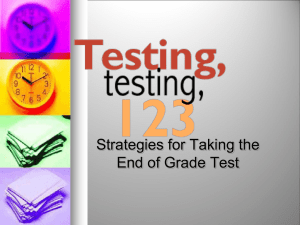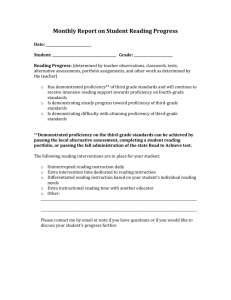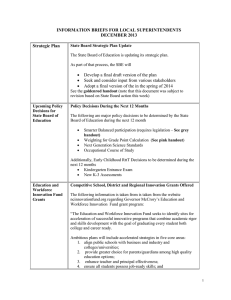North Carolina Read to Achieve Elimination of Social Promotion Process
advertisement
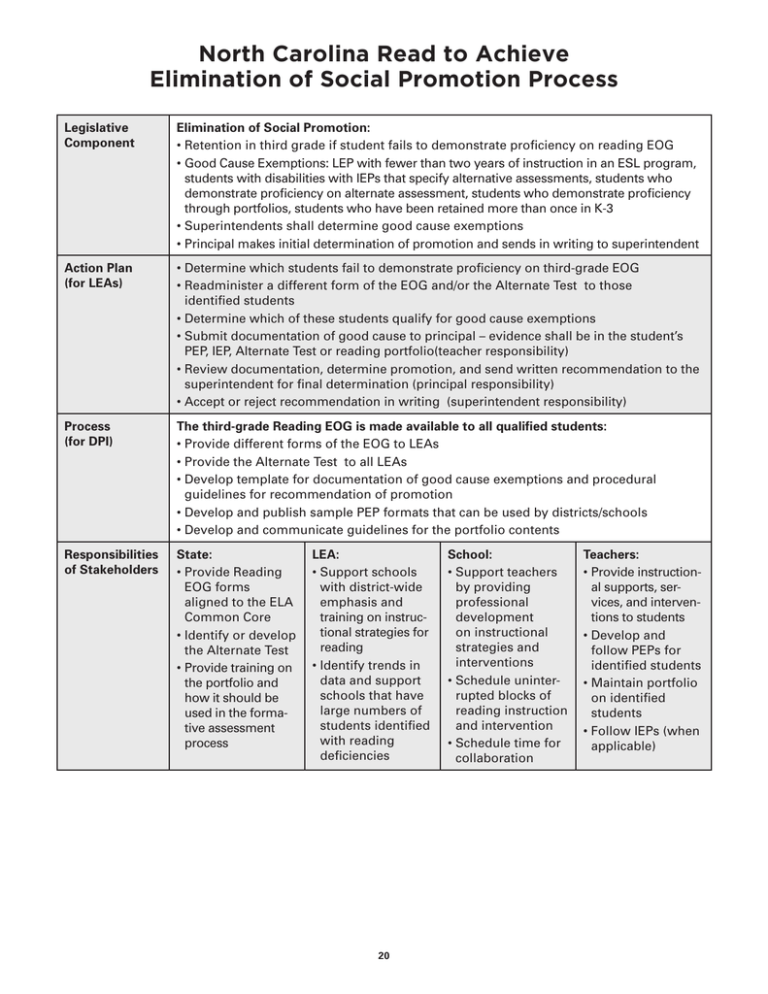
North Carolina Read to Achieve Elimination of Social Promotion Process Legislative Component Elimination of Social Promotion: • Retention in third grade if student fails to demonstrate proficiency on reading EOG • Good Cause Exemptions: LEP with fewer than two years of instruction in an ESL program, students with disabilities with IEPs that specify alternative assessments, students who demonstrate proficiency on alternate assessment, students who demonstrate proficiency through portfolios, students who have been retained more than once in K-3 • Superintendents shall determine good cause exemptions • Principal makes initial determination of promotion and sends in writing to superintendent Action Plan (for LEAs) • Determine which students fail to demonstrate proficiency on third-grade EOG • Readminister a different form of the EOG and/or the Alternate Test to those identified students • Determine which of these students qualify for good cause exemptions • Submit documentation of good cause to principal – evidence shall be in the student’s PEP, IEP, Alternate Test or reading portfolio(teacher responsibility) • Review documentation, determine promotion, and send written recommendation to the superintendent for final determination (principal responsibility) • Accept or reject recommendation in writing (superintendent responsibility) Process (for DPI) The third-grade Reading EOG is made available to all qualified students: • Provide different forms of the EOG to LEAs • Provide the Alternate Test to all LEAs • Develop template for documentation of good cause exemptions and procedural guidelines for recommendation of promotion • Develop and publish sample PEP formats that can be used by districts/schools • Develop and communicate guidelines for the portfolio contents Responsibilities of Stakeholders State: • Provide Reading EOG forms aligned to the ELA Common Core • Identify or develop the Alternate Test • Provide training on the portfolio and how it should be used in the formative assessment process LEA: • Support schools with district-wide emphasis and training on instructional strategies for reading • Identify trends in data and support schools that have large numbers of students identified with reading deficiencies 20 School: • Support teachers by providing professional development on instructional strategies and interventions • Schedule uninterrupted blocks of reading instruction and intervention • Schedule time for collaboration Teachers: • Provide instructional supports, services, and interventions to students • Develop and follow PEPs for identified students • Maintain portfolio on identified students • Follow IEPs (when applicable)

